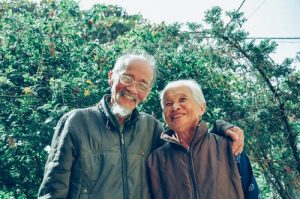Written by Taylor Woosley, Staff Writer. While all social conditions (acts of kindness, social activities, and cognitive reappraisal) showed a significant linear improvement from baseline to follow-up for the Satisfaction with Life Scale (SWLS), only participants in the acts of kindness group exhibited a significant linear increase in the Social Connectedness Scale (SCS-R).
 Feeling close to other people promotes well-being, whereas feeling disconnected from them can compromise mental and physical health1. Social connection encompasses the relationships, networks, or links that people have with other people or groups2. The proportion of the population who live alone has risen and an increasing number of people experience loneliness3. Social isolation and loneliness, markers of poor social health, are associated with decreased longevity and negative psychological outcomes, including increased anxiety and cognitive decline4.
Feeling close to other people promotes well-being, whereas feeling disconnected from them can compromise mental and physical health1. Social connection encompasses the relationships, networks, or links that people have with other people or groups2. The proportion of the population who live alone has risen and an increasing number of people experience loneliness3. Social isolation and loneliness, markers of poor social health, are associated with decreased longevity and negative psychological outcomes, including increased anxiety and cognitive decline4.
Emotional support is recognized as an essential element in high-quality patient and family centered care5. Kindness is thought to be vital to human well-being and doings acts of kindness promotes feelings of closeness that lead one to feel less isolated and lonely6. Resilience research shows that factors such as developing trusting relationships and responding compassionately to the feelings of others can help lay new neural pathways and improve quality of life7.
Cregg et al. conducted a study to assess the impact of acts of kindness on social connection and other dimensions of well-being. Study participants were undergraduate students and adults from a large midwestern city who completed the Depression Anxiety and Stress Scales (DASS-21) pre-screening survey, a 21-item scale that measures the emotional states of depression, anxiety, and stress. Study exclusion consisted of being under 18 years old or not meeting at least one of the three cutoffs for a mild severity of anxiety, depression, or stress symptoms. Subjects (n=122) had an age range of 18-78 (M=24.70, SD=10.40). 80 participants (66%) reported a history of some form of mental health treatment, and 30 participants (25%) reported currently receiving some form of mental health treatment.
Participants completed the Multidimensional Scale of Perceived Social Support (MSPSS), a measurement that assesses perceived social support from friends, family, and a significant other. Furthermore, subjects completed the Satisfaction with Life Scale (SWLS) and the Self-Absorption Scale (SAS). At the baseline session, participants completed baseline measures and were randomly assigned to one of three conditions: acts of kindness (AK, n=40), social activities (SA, n=41), or cognitive reappraisal (CR, n=41). Within-group analyses utilized a growth curve from baseline (week 0) to follow-up (week 10) for each condition. A between-subjects Cohen’s d was utilized as an estimate of effect size for between-group differences from baseline to post-test and baseline to follow-up.
No baseline differences were found amongst participants (all ps ≥ .12). Significant findings of the study are as follows:
- All conditions showed a significant linear improvement from baseline to follow-up for DASS Comp, negative affect (NA), and SWLS. However, only participants in the acts of kindness group exhibited a significant linear increase in SCS-R scores.
- Those in the acts of kindness group exhibited a greater reduction in DASS Comp symptoms than those in the cognitive reappraisal group at post-test (d=0.38) and follow-up (d=0.19). The acts of kindness group showed a greater increase in SWLS than the cognitive reappraisal group at post-test, along with a greater improvement in SCS-R scores than the social activities group at post-test (d=0.32).
Results of the study show that partaking in acts of kindness, social activities, or cognitive reappraisal made a significant improvement in life satisfaction. However, only acts of kindness showed advantages for social connection. Further research should continue to explore the benefits of acts of kindness as a promising intervention. Study limitations include the inability to control for potential interactions caused by COVID-19 social restrictions which were implemented during the study and the largely autonomous nature of the study.
Source: Cregg, David R., and Jennifer S. Cheavens. “Healing through helping: an experimental investigation of kindness, social activities, and reappraisal as well-being interventions.” The Journal of Positive Psychology (2022): 1-18.
© 2022 Informa UK Limited, trading as Taylor & Francis Group
Click here to read the full text study.
Posted March 3, 2023.
Taylor Woosley studied biology at Purdue University before becoming a 2016 graduate of Columbia College Chicago with a major in Writing. She currently resides in Glen Ellyn, IL.
References:
- Courtney AL, Meyer ML. Self-other representation in the social brain reflects social connection. Journal of Neuroscience. 2020;
- Wilkinson A, Bowen L, Gustavsson E, et al. Maintenance and Development of Social Connection by People with Long-term Conditions: A Qualitative Study. Int J Environ Res Public Health. May 28 2019;16(11)doi:10.3390/ijerph16111875
- Matthews GA, Tye KM. Neural mechanisms of social homeostasis. Ann N Y Acad Sci. Dec 2019;1457(1):5-25. doi:10.1111/nyas.14016
- Gardener H, Levin B, DeRosa J, et al. Social Connectivity is Related to Mild Cognitive Impairment and Dementia. Journal of Alzheimer’s disease : JAD. 2021;84(4):1811-1820. doi:10.3233/jad-210519
- Bradshaw J, Siddiqui N, Greenfield D, Sharma A. Kindness, Listening, and Connection: Patient and Clinician Key Requirements for Emotional Support in Chronic and Complex Care. J Patient Exp. 2022;9:23743735221092627. doi:10.1177/23743735221092627
- Fritz MM, Walsh LC, Cole SW, Epel E, Lyubomirsky S. Kindness and cellular aging: A pre-registered experiment testing the effects of prosocial behavior on telomere length and well-being. Brain Behav Immun Health. Feb 2021;11:100187. doi:10.1016/j.bbih.2020.100187
- Johnson MT, Fratantoni JM, Tate K, Moran AS. Parenting With a Kind Mind: Exploring Kindness as a Potentiator for Enhanced Brain Health. Front Psychol. 2022;13:805748. doi:10.3389/fpsyg.2022.805748
